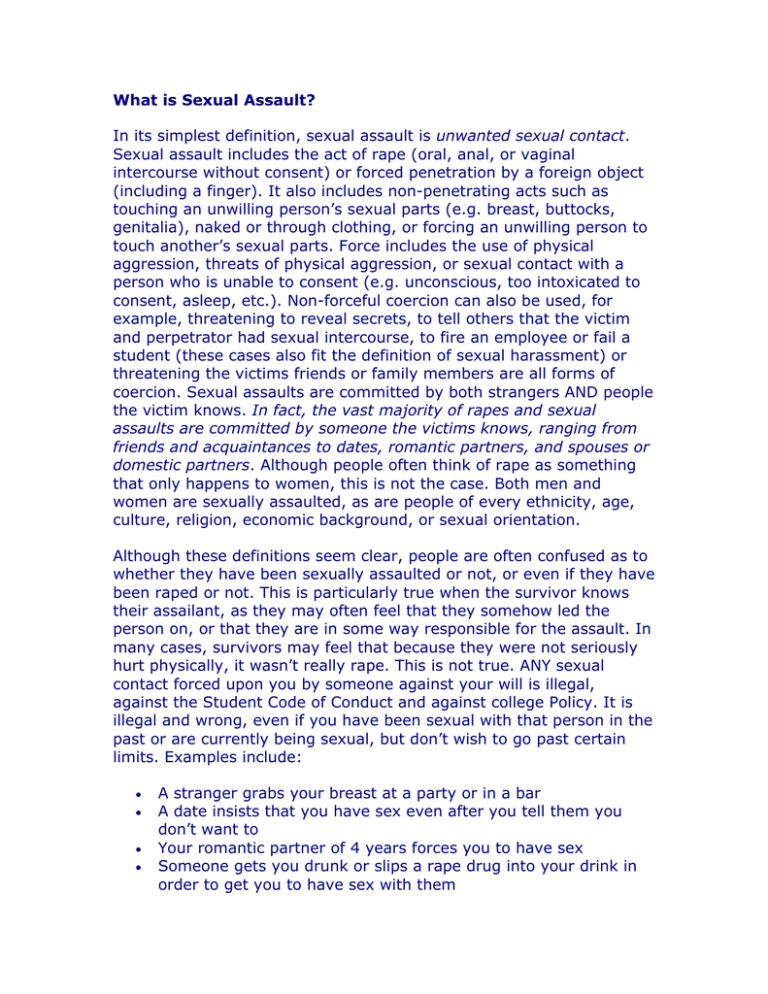
What is Sexual Assault?
In its simplest definition, sexual assault is unwanted sexual contact.
Sexual assault includes the act of rape (oral, anal, or vaginal
intercourse without consent) or forced penetration by a foreign object
(including a finger). It also includes non-penetrating acts such as
touching an unwilling person’s sexual parts (e.g. breast, buttocks,
genitalia), naked or through clothing, or forcing an unwilling person to
touch another’s sexual parts. Force includes the use of physical
aggression, threats of physical aggression, or sexual contact with a
person who is unable to consent (e.g. unconscious, too intoxicated to
consent, asleep, etc.). Non-forceful coercion can also be used, for
example, threatening to reveal secrets, to tell others that the victim
and perpetrator had sexual intercourse, to fire an employee or fail a
student (these cases also fit the definition of sexual harassment) or
threatening the victims friends or family members are all forms of
coercion. Sexual assaults are committed by both strangers AND people
the victim knows. In fact, the vast majority of rapes and sexual
assaults are committed by someone the victims knows, ranging from
friends and acquaintances to dates, romantic partners, and spouses or
domestic partners. Although people often think of rape as something
that only happens to women, this is not the case. Both men and
women are sexually assaulted, as are people of every ethnicity, age,
culture, religion, economic background, or sexual orientation.
Although these definitions seem clear, people are often confused as to
whether they have been sexually assaulted or not, or even if they have
been raped or not. This is particularly true when the survivor knows
their assailant, as they may often feel that they somehow led the
person on, or that they are in some way responsible for the assault. In
many cases, survivors may feel that because they were not seriously
hurt physically, it wasn’t really rape. This is not true. ANY sexual
contact forced upon you by someone against your will is illegal,
against the Student Code of Conduct and against college Policy. It is
illegal and wrong, even if you have been sexual with that person in the
past or are currently being sexual, but don’t wish to go past certain
limits. Examples include:
•
•
•
•
A stranger grabs your breast at a party or in a bar
A date insists that you have sex even after you tell them you
don’t want to
Your romantic partner of 4 years forces you to have sex
Someone gets you drunk or slips a rape drug into your drink in
order to get you to have sex with them

